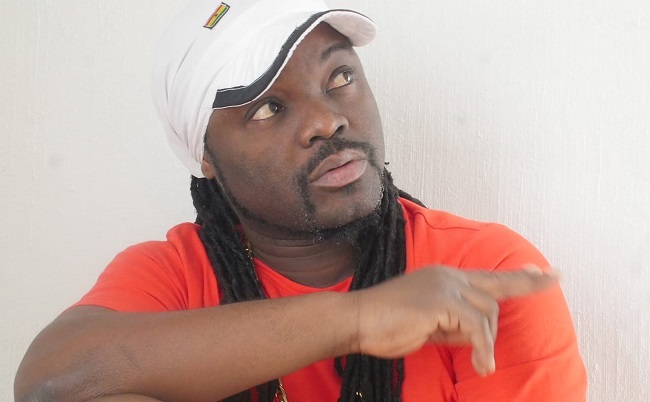Barima Sidney
CONTROVERSIAL HIPLIFE artiste, Barima Sidney, whose latest hit single, Papa No, is making a lot of impact on the local music scene, has been threatened with a law suit.
The hiplife artiste, known for releasing controversial songs on trending and hot issues in Ghana, revealed that soon after the release of the song, a number of personalities in the opposition National Democratic Congress (NDC) have threatened to drag him to court.
According to Sidney, the faceless personalities who have been threatening him through phone calls said the Papa No song referred to former President Mahama, an act that seriously damaged his reputation and integrity.
They also accused Sidney of releasing the song alongside images of certain known personalities including some celebrities.
Sidney, who denied the allegations, told BEATWAVES in an interview that he only released the song to entertain his fans, adding that he did not add any image alongside the song.
He, however, disclosed that he was currently working on the video to promote the song which was shot in certain locations in the capital.
The song comes at a time when two Ghanaian actresses, Tracey Boakye and Gloria Kani, have taken to social media to embarass themselves.
The two have been at each other’s throat, exposing secrets over a man whom they alleged to have had an affair with them.
Ms. Boakye, who refers to the father of her daughter as ‘Papa No’, which means “The Man”, has been in the news for fighting her colleague entertainer, Mzbel, over her current lover.
Ms. Boakye, in her statements, alleged that a certain man (translated in Akan as ‘Papa No’) had taken good care of her ever since she gave birth to that man’s daughter, her 3-month old baby.
In the song, Sydney attempts to give a pictorial description of him by mentioning some features he had and how unique he looked.
Sidney, in the song, called on the older men who many referred to as sugar daddies to leave the young ladies for the young men.
The song, BEATWAVES gathered, has been trending since its release and a number of politicians had adopted that song for their campaign in the upcoming elections slated for December.
By George Clifford Owusu


